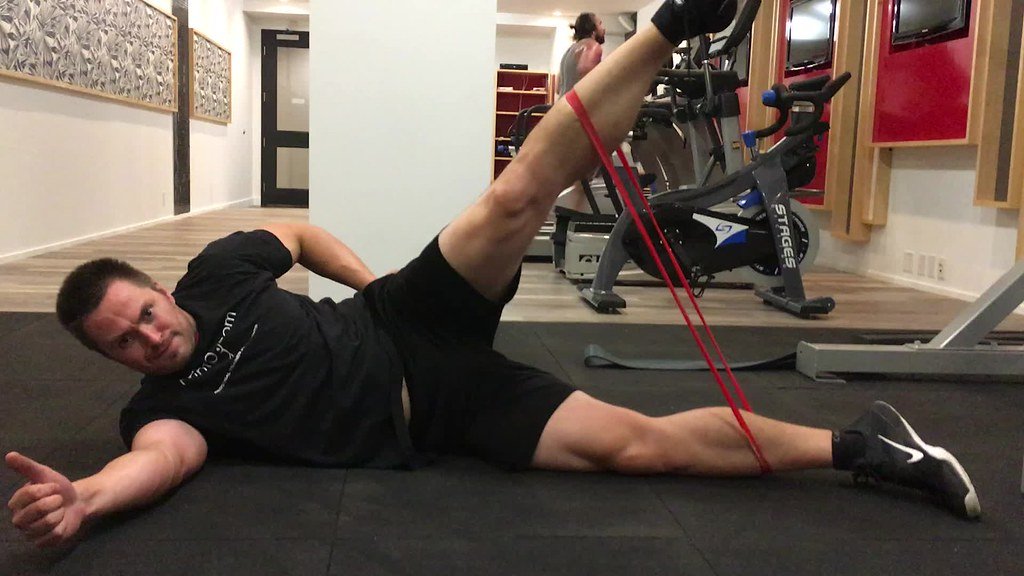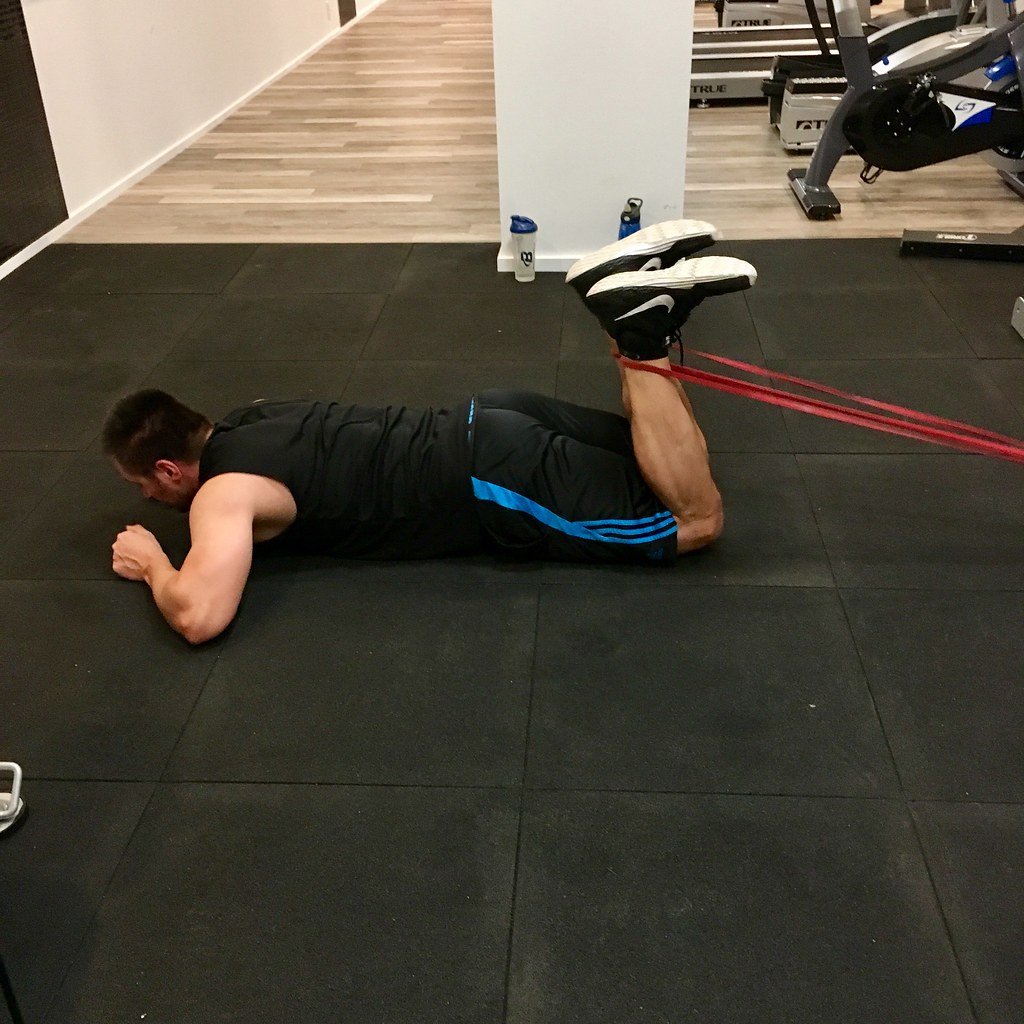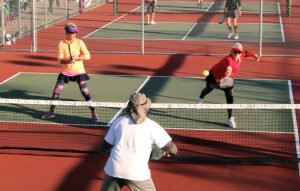You step onto the pickleball court, ready to unleash your inner athlete and conquer the game. Yet, as you prepare to engage in this graceful battle of paddle and ball, you find yourself yearning for that extra edge, that secret weapon to enhance your skills. Look no further, for resistance bands have arrived to elevate your pickleball training to an astonishing new level. With their simplicity and unmatched versatility, these elastic marvels will revolutionize the way you approach the sport, building strength, agility, and control like never before. So, take a firm grip of your paddle, get prepared to stretch your limits, and discover how to utilize resistance bands to become an unstoppable force on the pickleball court.
Table of Contents
- Choosing the Right Resistance Bands for Pickleball Training
- Understanding the Benefits of Resistance Band Training for Pickleball
- A Step-by-Step Guide to Incorporating Resistance Bands into Your Pickleball Training Routine
- Effective Resistance Band Exercises for Improving Pickleball Performance
- Tips for Safely and Effectively Using Resistance Bands in Your Pickleball Training
- Q&A
- In Summary

Choosing the Right Resistance Bands for Pickleball Training
Are you ready to elevate your pickleball game to the next level? Resistance bands can be an excellent addition to your training routine, helping you build strength, improve agility, and enhance your overall performance on the court. Before diving into the world of resistance bands, it’s important to consider a few key factors to ensure you choose the right ones for your pickleball training needs.
1. Resistance Level: Resistance bands come in different levels of tension, ranging from light to heavy. It’s crucial to select a resistance band that matches your current fitness level and goals. If you’re a beginner, starting with a lighter resistance band allows you to master proper form and avoid unnecessary strain. On the other hand, advanced players might benefit from heavier bands to challenge their muscles and take their training up a notch.
2. Material and Quality: The material and quality of the resistance bands play a significant role in their effectiveness and durability. Opt for bands made from high-quality latex or fabric that offer durability and flexibility. Additionally, ensure they come with sturdy handles or straps that provide a secure grip during exercises, preventing accidents and injury.
3. Versatility: Look for resistance bands that offer versatility in terms of exercises you can perform using them. This allows you to target multiple muscle groups and work on various aspects of your pickleball game. Bands with interchangeable attachments or ones that can be anchored to different surfaces provide endless possibilities for your training regimen.
By carefully considering these factors, you can choose the right resistance bands that suit your specific pickleball training needs. Investing in quality bands that offer the right resistance level and versatility will undoubtedly enhance your on-court performance and bring you closer to achieving your pickleball goals. So, get ready to add some extra resistance to your training and unlock your full potential!
Understanding the Benefits of Resistance Band Training for Pickleball
Pickleball is a popular sport that combines elements of tennis, badminton, and ping pong, offering a fun and competitive experience for players of all ages. One effective way to enhance your pickleball game is through resistance band training. By incorporating resistance bands into your regular exercise routine, you can reap a multitude of benefits that will take your pickleball skills to the next level.
1. Strength and Power: Resistance band training helps build strength and power in the muscles used while playing pickleball. By performing exercises such as resistance band squats, lunges, and rows, you can target specific muscle groups like your legs, arms, and core. This increased strength translates directly into a more powerful and controlled game on the court.
2. Stability and Balance: Pickleball requires quick movements and rapid changes in direction. Resistance bands engage your stabilizer muscles which are crucial for maintaining balance and stability during gameplay. Strengthening these muscles will improve your ability to move efficiently and react swiftly, reducing the risk of injury and enhancing overall performance.
3. Flexibility and Mobility: Flexibility is an essential component of pickleball. Resistance bands can be used to perform exercises that focus on stretching and improving flexibility, such as hamstring stretches and hip mobility exercises. Enhanced flexibility enables you to reach for those hard-to-get balls and execute dynamic shots more effectively.
Remember, incorporating resistance band training into your pickleball routine can greatly enhance your performance on the court. Consult with a fitness professional to learn the proper techniques and exercises tailored to your individual needs. So go ahead, grab those resistance bands, and take your pickleball skills to new heights!
A Step-by-Step Guide to Incorporating Resistance Bands into Your Pickleball Training Routine
One of the most effective ways to level up your pickleball game is by incorporating resistance bands into your training routine. These versatile and portable pieces of equipment can help improve your strength, agility, and overall performance on the court. Here’s a step-by-step guide on how to effectively utilize resistance bands in your pickleball training:
Step 1: Warm-up with Dynamic Stretches
Start your pickleball training session by warming up your muscles and joints with some dynamic stretches. Incorporate resistance bands into your warm-up routine by doing exercises such as resistance band shoulder rotations, lateral walks, and leg swings. These movements will not only activate your muscles but also prepare them for the upcoming challenges on the court.
Step 2: Strengthen Your Core and Legs
Resistance bands are fantastic tools to target specific muscle groups, such as your core and legs. Include exercises like resisted squats, standing abductions, and seated twists in your routine to build a strong foundation. The added resistance from the bands will challenge your muscles in new ways, helping you develop the stability, balance, and power necessary for pickleball success.
Step 3: Enhance Your Agility and Speed
To improve your agility and speed on the pickleball court, incorporate resistance band exercises that focus on lateral movements and quick footwork. Lateral band walks, resistance band shuffles, and high knees with bands are great choices. By training with resistance bands, you’ll enhance your ability to change direction and react rapidly during intense matches.
Remember, consistency is key when incorporating resistance bands into your pickleball training routine. Gradually increase the resistance level and the intensity of your workouts to continue challenging your muscles. With dedication and persistence, you’ll reap the benefits of enhanced strength, agility, and overall performance in your next pickleball game. So, grab those resistance bands and let’s pickleball!
Effective Resistance Band Exercises for Improving Pickleball Performance
Looking for innovative ways to amp up your pickleball performance? Look no further! These effective resistance band exercises are guaranteed to take your game to the next level. Incorporating resistance bands into your training routine can help build strength, improve agility, and enhance overall performance on the court.
1. Side Shuffle with Band
Step up your lateral movement game with this exercise. Place a resistance band around your ankles, ensuring proper tension. Get into a slight squat position and side shuffle, maintaining tension in the band throughout. This exercise targets your glutes, hips, and quads, improving your ability to quickly move sideways and change direction during a match.
2. Band-Assisted Lunges
Take your lunges to a whole new level with resistance bands. Stand with one foot forward and the other foot anchored behind you in the band. As you lower into a lunge, feel the resistance as you push against the band. This exercise engages your quads, hamstrings, and glutes, strengthening your lower body for powerful shots and explosive movements on the court.
3. Band-Resisted Dribbling
Improve your ball control and wrist strength with this exercise. Wrap a resistance band around your forearm and secure it to a stable object. Start dribbling the pickleball, feeling the added resistance from the band. This exercise not only enhances wrist stability but also enhances coordination and reflexes.
Remember to always warm up before performing these exercises and consult with a trainer or medical professional if you have any concerns or injuries. By consistently incorporating these resistance band exercises into your training regimen, you will be well on your way to reaching your maximum potential on the pickleball court!
Tips for Safely and Effectively Using Resistance Bands in Your Pickleball Training
Using resistance bands in your pickleball training is a fantastic way to enhance your strength, flexibility, and explosiveness on the court. However, it’s essential to use them safely and effectively to avoid injury and maximize their benefits. Here are some tips to help you get the most out of your resistance band workouts:
1. Choose the right resistance level: When selecting resistance bands, opt for a level that challenges your muscles without causing excessive strain. Start with a lighter resistance and gradually increase it as you build strength.
2. Warm up before using resistance bands: Just like any other workout, it’s crucial to warm up your muscles before using resistance bands. Perform dynamic stretches or a light cardio activity to increase blood flow and prepare your body for exercise.
3. Maintain proper form: During your workouts, focus on maintaining proper form to prevent injuries and target the right muscles. Keep your core engaged, back straight, and shoulders relaxed. Be mindful of your posture and alignment, especially when performing exercises that involve twisting or bending movements.
4. Incorporate a variety of exercises: To get a full-body workout, vary your exercises with resistance bands. Include exercises that target different muscle groups, such as squats, lunges, rows, and presses. Incorporate both upper and lower body movements to improve overall strength and coordination.
5. Don’t forget about recovery: After an intense resistance band workout, make sure to allow your muscles time to recover. Stretching and using foam rollers can help alleviate any tightness or soreness. Giving your body adequate rest and recovery will ultimately improve your performance and prevent overuse injuries.
Remember, using resistance bands in your pickleball training can greatly enhance your skills and overall fitness. Stay consistent, listen to your body, and enjoy the benefits of this versatile training tool. Happy training!
Q&A
How can resistance bands be used for pickleball training?
Resistance bands can be used in a variety of ways to improve your pickleball game. They can be utilized to increase strength, flexibility, and power in specific muscle groups used during play, such as the shoulders, arms, and legs.
What exercises can I do with resistance bands to enhance my pickleball skills?
There are several effective exercises you can do with resistance bands. Some examples include lateral band walks to strengthen your lateral movement, standing rows to improve your backhand, and squats with bands to increase leg power for quick movements on the court.
How can resistance bands help prevent injuries in pickleball?
Using resistance bands as part of your training routine can improve overall muscular stability and balance, thus decreasing the risk of injuries. They also provide a low-impact way to strengthen the muscles around your joints, reducing the chance of strains or sprains.
Can resistance bands be used for warm-up exercises before playing pickleball?
Absolutely! Resistance bands are a versatile tool for warming up before pickleball. Incorporating band exercises into your warm-up routine can activate the muscles used during gameplay, increase blood flow, and prep your body for optimal performance on the court.
Can resistance bands help with pickleball-specific movements like dinking or serving?
Definitely! Resistance bands can simulate the movements required for dinking and serving, allowing you to strengthen the targeted muscles used in these techniques. This targeted training can improve your control, power, and accuracy while performing these essential pickleball skills.
What resistance level should I choose when starting with resistance bands?
Choosing the appropriate resistance level depends on your current fitness level and goals. Beginners should start with lighter resistance bands and gradually work their way up as they build strength and endurance. It’s important to select a band that challenges you without compromising your form or causing discomfort.
Can resistance bands be used for solo practice sessions?
Absolutely! Resistance bands are a fantastic tool for solo practice sessions. From practicing swings to working on footwork, these bands provide resistance to mimic the motion of hitting a pickleball, helping you improve your technique even when you don’t have a partner to play with.
Are there any safety precautions to consider when using resistance bands for pickleball training?
Yes, safety should always be a priority. Make sure to choose a band that suits your fitness level to avoid overexertion or injury. Additionally, inspect your bands regularly for any signs of wear and tear, and ensure they are securely anchored before each exercise to prevent accidents.
In Summary
As we reach the end of this captivating journey into the world of pickleball training with resistance bands, we hope you are feeling empowered and ready to elevate your game to unprecedented heights.
By incorporating these versatile bands into your training regime, you have unlocked a realm of endless possibilities. From strengthening your core and improving your balance, to enhancing your agility and explosiveness on the court, the benefits are truly boundless.
Remember, the true beauty of resistance bands lies not only in their portability and affordability, but also in their ability to cater to players of all levels. Whether you are a novice seeking to refine your skills or a seasoned player aiming for perfection, these bands will never cease to challenge you and push you beyond your limits.
As you embark on your journey, don’t forget to embrace the process and allow yourself to enjoy the growth along the way. Patience and persistence are the keys to unlocking your true potential. Utilize these bands with intention, let them be your guiding force, and witness the transformative power they hold.
Pickleball training with resistance bands is not just a means to an end, but an art form in itself. It is an opportunity to sculpt your body, sharpen your mind, and embrace the sheer joy that this amazing sport brings. So, grab your bands, step onto the court, and embark on this exhilarating adventure.
May these bands be the catalyst that propels you to new heights, both on and off the pickleball court. Remember, every practice session is a step closer to greatness. Keep pushing, keep striving, and let the magic unfold.
With your newfound understanding of resistance bands and their valuable role in pickleball training, the possibilities are truly boundless. So stay curious, embrace the challenge, and let your pickleball journey be an everlasting testament to the power of determination and continuous growth.
Farewell, dear reader, and may your path in the world of pickleball be forever strewn with victories, camaraderie, and unfathomable success. Go forth, armed with the knowledge you have gained, and conquer the court like never before. The game awaits you, now more thrilling than ever!
As an affiliate, my content may feature links to products I personally use and recommend. By taking action, like subscribing or making a purchase, you’ll be supporting my work and fueling my taco cravings at the same time. Win-win, right?
Want to read more? Check out our Affiliate Disclosure page.




